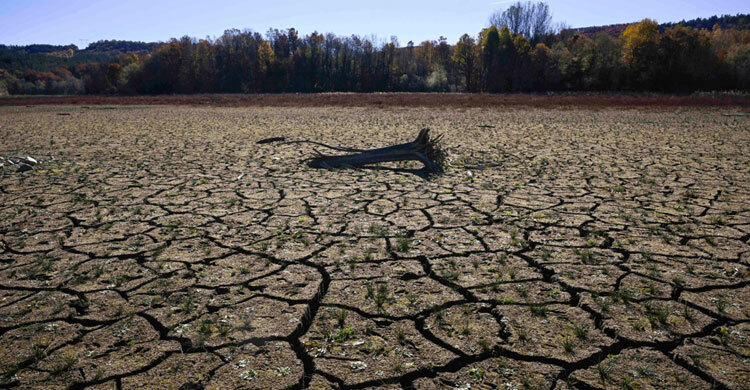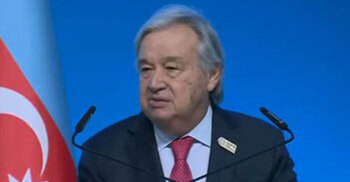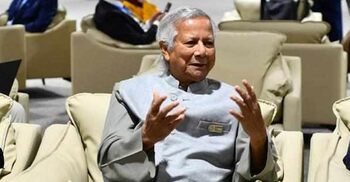Poorer nations need $1tn a year by 2030 in climate finance

Poor countries need $1tn a year in climate finance by 2030, five years earlier than rich countries are likely to agree to at UN climate talks, a new study has found.
Waiting until 2035 to receive the funding, which is to help them cut greenhouse gas emissions and cope with extreme weather, would place damaging burdens on vulnerable countries, warned the Independent High-Level Expert Group on Climate Finance, a group of leading economists.
The study was published on Thursday morning as governments from nearly 200 countries worked on fraught negotiations over how much finance wealthier countries should provide, and how much could come from other sources, at the Cop29 summit in Azerbaijan. World leaders, who had attended the opening days of the conference in Baku, left their ministers and high-ranking officials to get on with the job of forging a new global plan on climate finance, due to wrapped up at the end of next week.
But large areas of disagreement between the rich and poor world remain, including how much money should be provided and from what sources.
The talks are focused on a goal of at least $1tn a year in climate finance for poorer countries by 2035. This figure comes from a previous study from the high-level group (IHLEG), a group of economists convened by Cop presidencies since 2021 and chaired by the economists Nicholas Stern, Vera Songwe and Amar Bhattacharya, which found in 2022 that about $2.4tn a year was needed.
At least half of this could come from poorer countries’ own budgets, the original study found, leaving about $1tn a year to come from external sources, including overseas aid from richer countries.
This week’s follow-up report warned that by 2035, developing countries, excluding China, would need $1.3tn a year. But waiting until 2035 to reach the $1tn goal would create future problems, the economists said.
Lord Stern said: “It’s more expensive the longer you wait. This [$1tn by 2030] is absolutely possible for rich countries to achieve, but it does entail real commitment and moving quickly.”
He said that about half of the $1tn could come from private sector investment, about $250bn from multilateral development banks such as the World Bank, and the remainder from a mixture of sources including direct grants from developed countries to vulnerable nations, special drawing rights from the International Monetary Fund and new forms of taxation, such as levies on aviation and shipping.
“Developed countries should embrace the logic of this analysis,” he urged. “Kicking the can down the road doesn’t help.”
Mohamed Adow, director of the climate and energy thinktank Power Shift Africa, said of the report: “It’s good to see respected economists outlining the need for trillions in climate finance. It shows that the demands from developing countries at Cop29 are legitimate and underscores the importance of getting a robust agreement on climate finance agreed here in Baku.”
But he added: “While private finance has a role to play in building new renewable energy, it has failed miserably to tackle adaptation needs of vulnerable communities. That’s why it’s vital we get a commitment of grant based, public finance to address the issues which profit-seeking private finance can’t address.”
Funding for poor countries is the biggest source of contention at the Cop29 summit. Under the 2015 Paris climate agreement, rich countries have an obligation to the poor world and this year must come up with a “new collective quantified goal” (NCQG) setting out how they will meet their responsibilities.
Richer countries agree they should provide some money, but want to make up a large part of the goal with finance from the private sector. Some countries are advocating new taxes or levies to provide part of the money needed. Rich countries also want petrostates and large emerging economies with high greenhouse gas emissions, such as China, to contribute. Early drafts of a possible agreement have shown that countries are far apart on key issues.
Harjeet Singh, climate activist and global engagement director for the Fossil Fuel Non-Proliferation Treaty Initiative, said: “Report after report, including this one, makes it undeniable: we need trillions each year to transform economies and tackle escalating climate impacts, and the cost of inaction will be exponentially higher. Yet leaders from wealthy nations continue to bury their heads in the sand, sidestepping the essential funding that developing countries need and ignoring the fact that a just, global transition is our only path forward.
“If Cop29 fails to set a meaningful climate finance goal – real trillions in grants, not accounting tricks – we’re all on the losing side. Climate devastation is already an everyday reality, and every delay only deepens the crisis for everyone.”
Yalchin Rafiyev, the host country’s lead negotiator, whose job it is to find compromises among the fractious governments, told the Guardian the talks were moving much as expected at this early stage. “We are making progress,” he said.
The talks were lifted by an announcement from the World Bank and its fellow multilateral development banks of a doubling of their key climate finance commitments, to $120bn a year by 2030. Rafiyev said: “We have been working very hard to push development banks for more funding. This is a strong commitment.”
But one high-level executive from a public finance institution told the Guardian this sum was not enough: “they could do more”.
Source: The Guardian





